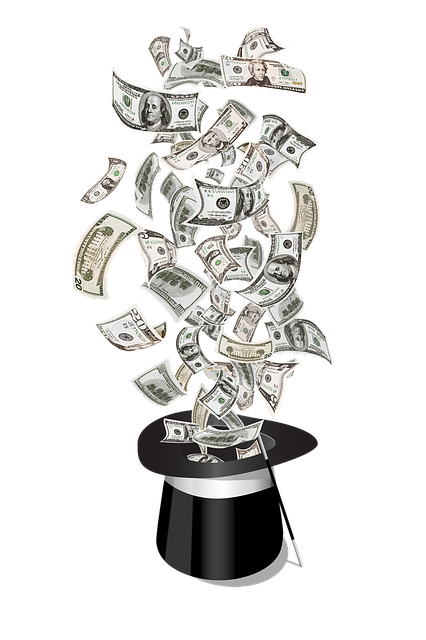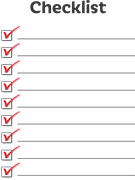US Tax Considerations- Blogging on Steemit: Not-for-Profit Activities Hobbies)

In the prior articles I have written on US Tax considerations, we learned how to value the US Dollar income received from STEEM and Steem Based Dollars (https://steemit.com/tax/@lpfaust/us-tax-considerations-when-blogging-for-magic-internet-money-part-i) and we learned how to calculate the capital gain (or loss) from exchanging STEEM and Steem Based Dollars for US Dollars (https://steemit.com/tax/@lpfaust/us-tax-considerations-when-blogging-for-magic-internet-money-part-ii). We have also discussed reporting requirements if you hold your STEEM and Steem Based Dollars in foreign crypto exchanges (https://steemit.com/tax/@lpfaust/us-tax-considerations-cryptocurrencies-held-in-foreign-exchanges) and in the most recent blog, discussed in a very general overview how the IRS determines if you are engaged in a for profit business or just a hobby.
At this point, perhaps, we are determined to make a business out of blogging, writing, creating music, photography or art, but possibly decide not to concern ourselves with the Nine Factors the IRS Uses to Determine if it’s a Business or Hobby (anchor link). If the IRS reclassifies our business activity to a hobby, does that mean we get no deductions against the income generated?
The answer is, much like many a Facebook relationship status…it’s complicated.
This stuff can get dense. I will spare you from citations of Title 26, but just check out Publication 535 to get an idea of what I am up against.
Let’s take a closer look in a very general way…
But First, The Required Legalese…
Any accounting, business or tax advice contained in this communication, including attachments and enclosures, is not intended as a thorough, in-depth analysis of specific issues, nor a substitute for a formal opinion, nor is it sufficient to avoid tax-related penalties.
Hobby Loss Deductions Revisited

When the business is not carried on for profit (Hobby), special rules apply as it relates to deductions. Below is a very broad overview of what the special rules are and how they are applied.
Rule Number 1, because the business is not carried on for profit, the permitted deductions are limited to total gross income.
For example, if the business generated $10,000 of gross income, even if we have permitted expenses of $15,000, we are only allowed to take $10,000 of deductions because our total gross income is $10,000.
Rule Number 2, for purposes of this example, we are assuming the business is run as a sole proprietorship (or single member Limited Liability Company) and as a result, all of the permitted expenses must be itemized (on a Schedule A). This can work against us if we typically take a standard deduction. If the standard deduction is taken, then all the permitted expenses would be disallowed because a Schedule A would not be filed.
Rule Number 3, because permitted expenses must be itemized, some of the expenses will be subject to limitations based upon Adjusted Gross Income. Permitted Ordinary and Necessary deductions are subject to a 2 percent of Adjusted Gross Income floor and a casualty loss deductions are subject to a 10 percent of Adjusted Gross Income floor.
For example, suppose you have a business that generated $10,000 of income and $15,000 of expenses (ignore casualty losses for now), our permitted deductions of $15,000 will be limited by 2 percent of our income or ($10,000 * 2%) $2,000. So while we have $15,000 of permitted deductions, we are only permitted to take ($15,000 - $2,000) $13,000 of those permitted deductions.
Rule Number 4, as I it was not bad enough; there is a specific order which the permitted deductions must be taken, listed as category 1, category 2 and category 3 deductions. The typical deduction types are covered below.

Category 1 Deductions include items such as some types of taxes, casualty and theft losses, bad debts, worthless securities, tax-related expenses, qualified residence interest, medical expenses and charitable contributions.
Category 2 Deductions are items that would be ordinary and necessary and allowable if the activity were engaged in for profit, and are generally operating expenses such as rent, utilities, maintenance, labor, supplies, insurance, advertising, etc.
To understand what the meaning and requirement of “ordinary and necessary” business expenses, the Internal Revenue Service defines it as:
“To be deductible, a business expense must be both ordinary and necessary. An ordinary expense is one that is common and accepted in your trade or business. A necessary expense is one that is helpful and appropriate for your trade or business. An expense does not have to be indispensable to be considered necessary.”
Category 3 Deductions include depreciation, partial losses with respect to property, partially worthless debts, amortization, and amortizable bond premiums.
Wrapping it Up
Having a business reclassed as a hobby by the IRS is not a good thing. Both the complexities of the hobby loss rules and the possibility of losing a portion of the permitted deductible expense should be incentive enough to do everything in your power to prevent that reclassification.
Next up, we will look at for profit business and the rules associated with it.
Have a tax question? Please feel free leave a question in the comment section below and I may feature it in a future blog post.
Please follow me on my blog @lpfaust if you enjoy my content.
Good Post @lpfaust Up Vote and a Follow. More people will begin to up vote and follow if you keep this stream up. Thanks for the info.
full $teem ahead!
@streetstyle
ps. check out my blog if you can, you might find some interesting stuff there.
Thanks, for the upvote, follow and comment streetstyle. Tax can be an incredibly polarizing issue even when it's just a factual, non-editorialized article. My feeling is everyone should have at least some basic tax knowledge and understand (in broad terms) what their obligations are, then armed with that knowledge decided what's best for them.
I am following you now as well. In my opinion, everyone should have a bounty hunter in their feed. Looking forward to looking through your material and what's coming from your end.